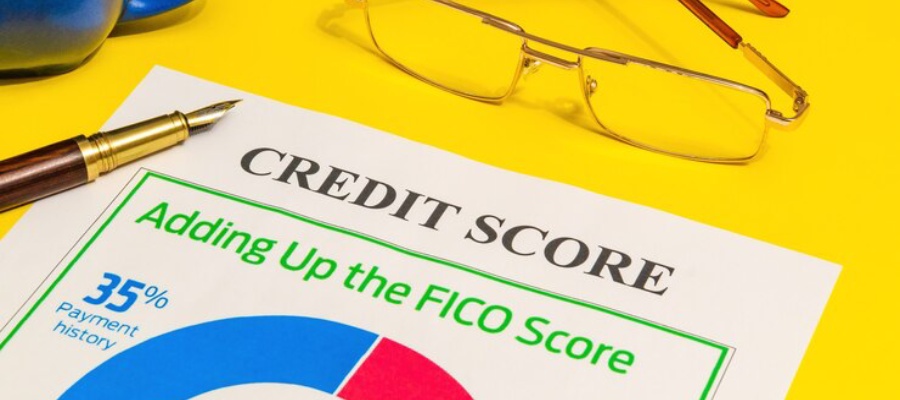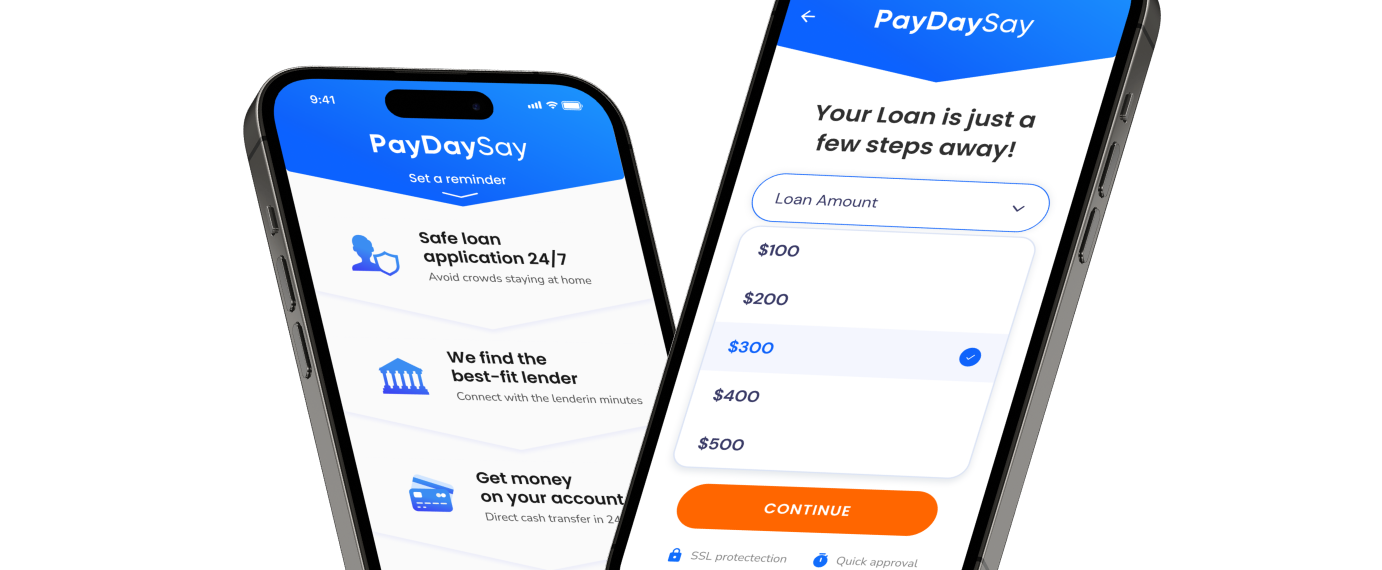The popularity of lending services is growing every day. This is not surprising since financial products are in great demand on the market. If money could only be obtained from a bank a few years ago, the variability has increased today. You just go to the site, fill out an application, send it for consideration, and, if approved, receive money on your card.
But loans are not available to everyone. Your score is the most critical factor in approving or rejecting a loan application. It is usually formed based on:
- Conscientiousness in fulfilling obligations to creditors. That is, the timely repayment of loans;
- Loan diversification. Multiple uses of different types of loans positively affect the rating. Multiple numbers of loans of the same type usually have a negative impact;
- Length of credit history. This indicator reflects the experience of the borrower in lending;
- The time since the update of the history. Fresh entries have a stronger effect on scores than old ones.
A credit score does more than just make it easier to get loans. It has many other benefits:
- Tracking personal ‘financial health’;
- Identification of fraudsters;
- Increasing financial literacy.
But what if the score is bad? What if a person has no credit history at all? How long does it take to build credit? Find answers to these and other important questions in this article.
How Long Does It Take To Get a Good Credit Score?
How long does credit building take? Regardless of the reason, you can usually expect to spend about six months building a good estimate from scratch. More time may be required if you want to get in the range of a good to an excellent score.
How Long Does It Take to Improve Your Credit Scores?
A good history is formed with the active use of financial products and their timely repayment. The degree of events’ influence on credit history decreases with an increase in their limitation period. That is, the impact of delays made in the past will decrease over time, and the recent repayment of a loan agreement will improve the current credit history.
Pay attention that a large number of simultaneously open loans will lower the current rating. To improve your history, you must first pay off current delinquencies. Minimize the number of open agreements. Try to actively use financial products, making monthly payments on time. But first, evaluate your income.
The entire score improvement process requires 30-90 days.
What Is A Good Credit Score?
A credit score is an assessment of a borrower’s creditworthiness based on information from a credit history. The higher the score, the more trustworthy the client is considered. A score can be listed on a credit report or provided as a separate service.
The ranges may vary depending on the scoring model used. But usually, scores of 580-669 are considered fair, 670-739 are good, 740-799 are very good, 800 and above are excellent. A good score is an indicator from 670 to 739. It indicates that a person has a good credit history and the right to apply for a cash advance with a high probability of approval.
There are several different types of good credit scores. Be sure to review their description below to find the right answer to the question: how long does it take to build credit?
By FICO
Fair Isaac Corporation (FICO) is a well-known analytics software company. It presents its products and services to both consumers and businesses. The company is known for providing the most accurate consumer ratings. Financial institutions use them when deciding whether to issue funds.
The FICO score is generated from a credit report to assess risk and determine the borrower’s creditworthiness. When assessing FICO creditworthiness, the following areas are taken into account:
- Payment history;
- The current level of debt;
- Types of loans used;
- Length of credit history;
- New accounts.
Those thinking about how long does it take to build credit should know that the general range of FICO scores is from 300 to 850. Scores ranging from 670 to 739 are indicative of a good credit history. Most lenders will find this rating favorable and will likely approve an application.
By VantageScore
The FICO rating is the most popular today. It is used by about 90% of all lenders. However, some prefer the alternative – VantageScore. The most recent version, VantageScore 4, is a score based on several important factors. These include:
- General use of credit;
- The available amount of money;
- Balance and experience;
- Payment history;
- New accounts opened;
- Age of credit history.
VantageScore uses advanced algorithms and machine learning methods. According to many experts, this makes it more accurate than FICO. However, many critical factors are ignored. Among them are gender, age, nationality, marital status, occupation, salary, employment history, place of residence, etc.
In early versions, VantageScore used a range of scores from 501 to 990 with the corresponding letter grades from A to F. However, starting from version 3, VantageScore switched to the same range as FICO (300 to 850) and removed the letter grades. A good VantageScore score is 661-780.
You need to pay attention to this when answering the question: how long does it take to build credit?
Factors By Which Credit Score Is Calculated

You probably already understood that a score is calculated by a number of factors. Some have a more significant impact on the borrower’s score, while others are less influential. Read the descriptions of the main factors below.
Payment History (35%)
The history of payments is a dossier of the borrower, which contains information about all loans taken and how timely they were repaid. It helps the lender decide whether to lend to the client.
Payment history has a major impact on the score. It makes up 35% of the score assessment. A poor payment history indicates that the borrower has outstanding debt. The score is significantly reduced. New borrowers’ loans are either unavailable or are issued on unfavorable terms.
It is recommended to close all current loan arrears to improve the payment history. If this does not work, you can use the refinancing service. The decision should be made based on the amount of monthly income.
Amounts Owed (30%)
Loan debt is the amount you have to repay. This term refers to all types of loans. To find out the amount of debt, you need to contact a financial specialist. Sometimes the amount owed can be calculated based on the payment schedule. Those clients who want to pay off the payment on a long-term basis also need to know the total amount owed.
If the payer does not repay the loan on time, there is an overdue debt. The lender charges penalties and fines. The score largely depends on the amount owed. As a rule, it makes up 30% of your rating. The higher the amount owed, the lower the score.
Length of Credit History (15%)
A credit history is information stored in a Bureau of Credit Histories that characterizes a person’s payment discipline. Transunion, Experian, and Equifax are the three main bureaus that collect information about credit histories. They receive regular reports from banks, retail stores, mortgage lenders, etc.
Each report entry contains the date it was opened, the borrowed amount, and payment history. The report also includes all instances of applying for a cash advance.
The length of credit history directly affects your score. It makes up 15% of the FICO score and approximately 20% of the VantageScore score. The older the credit history, the higher the score.
New Credit (10%)
New credit is another factor that affects your score. As a rule, it makes up 10% of the score. Opening a new loan leads to an increase in the total amount owed and, as a result, a decrease in your rating.
The study shows that opening several new loans at the same time is the riskiest. This is especially true for those who do not have a lengthy credit history.
Credit Mix (10%)
A person’s ability to effectively manage different types of loans (student loan, mortgage, etc.) simultaneously can benefit a score. Otherwise, it can negatively impact if there are large delays in payments. In general, the credit mix determines 10% of the score.
How To Build a Good Credit Score
Today, many people are concerned about the questions “How to build a good score from scratch?” and “How long does it take to build credit?”. Indeed, everyone wants to be able to get a loan request approved without any hassle.
However, building a good score from scratch is not always easy. This process takes time and requires a lot of effort. Therefore, if you are planning to apply for a cash advance soon, it is best to start building a good score right now.
There are five steps to go through. Each of them is described in the table below.
| Steps to Be Taken | Short Description |
| Get an SSN | SSN is a unique code consisting of 9 characters. It allows tracking income and benefits. You can get an SSN by contacting the Social Security Administration. Banks and online lenders usually ask for a Social Security number when applying for a loan. This helps them understand your trustworthiness and creditworthiness. |
| Create a secured card | When you use a secured credit card, you make a deposit. The financial institution usually provides a card with an available spending limit equal to the deposit. In fact, you use your own funds while building credit. If the money is used responsibly, the borrower’s score goes up. |
| Get a credit-building loan | A credit-building loan is an effective way to get a good credit history. The financial company transfers funds to a secured account on your behalf. The money is kept in the account. You make payments in monthly installments. Once the loan is paid in full, you can use the money however you like. This way, you increase your savings and build credit. |
| Use resources responsibly | After you have built one or two credit entries, develop important habits and demonstrate that you are a reliable borrower. Make payments on time. Don’t overuse loans. Don’t close accounts. |
| Keep track of your score and report | By monitoring reports from Equifax, Experian, and TransUnion, you can check for any discrepancies that can negatively impact your score. |
How to Improve Your Credit Score
How long does it take to build credit? As mentioned above, it may require about half a year. How much time is required to improve your score? Usually, 1-3 months is enough. You can use several effective ways:
- Verify that there are no mistakes. Mistakes in credit history are very rare. But still, they sometimes happen. Therefore, it is necessary to study and analyze all the facts carefully;
- Get a card with a cash limit. When using a card, even with a small cash limit, data about you as a borrower will be sent to credit bureaus. Paying on time will help increase your score;
- Pay in cash. The less you use your card, the lower your interest and total debt will be. As the debt decreases, the rating will increase;
- Soberly assess your strengths. Before taking a cash advance, evaluate your income so as not to fall into a debt hole;
- Reorganize debt. The essence of the debt reorganization is to change the current terms of the loan to facilitate debt servicing. After reducing the load on payments, a person ceases to make delays. Over time, it is possible to improve the rating;
- Control your credit history. If you want to improve your score, check it regularly. The decrease in the score usually occurs on the 30th day of delay, then on the 90th day, and so on. If you have debt, you need to find a way to pay it off. The sooner you do this, the more chances you have to keep your position in the ranking.
Tips to Cut the Time Of Building Good Credit
So, how long does it take to build credit? You need at least 6 months. Is it possible to cut the time of building good credit? Here are some helpful tips:
- First of all, you should pay off the current delays (if any). Try to minimize the number of simultaneously open agreements. It is also recommended to actively use financial products and, most importantly, make payments on loans on time;
- Apply for refinancing. This is the execution of a new targeted loan to pay off the old one. A new loan is taken either for a longer period or at a lower interest rate. In both cases, the likelihood of new delays is significantly reduced;
- Use microloans. One of the most effective ways to quickly improve your score is the execution and timely repayment of microloans. This method is great for you if you’re wondering, “How long does it take to build credit?” and “How can I improve my score quickly?”.
What to Avoid If You Want to Build Your Credit Fast
You have already learned the answers to the question: how long does it take to build credit? If you want to save time, try not to make the following mistakes:
- Sign up for many credit cards. Do not open many cards at the same time. This is a risky practice as it will be difficult for you to keep track of all payments and make them on time;
- Spend more than you can afford. You need to be careful when deciding to use a credit card, microloan, or any other type of lending. Your income plays a key role here. Don’t borrow a lot if your income doesn’t cover it;
- Make late payments. If you want to build good credit fast, you shouldn’t make late payments. Otherwise, this will lead not to an increase in the score, but to its decrease.
How To Maintain a Good Credit Score
Once you achieve a good score, don’t forget to maintain it. A good score will allow you to get a cash advance on the most favorable terms (high amounts, low APRs, low fees, etc.) at any time you need. To maintain your score, do the following:
- Be organized;
- Control the payment due dates;
- Sign up for automatic payments;
- Keep your contact information up to date.













 on your homescreen
on your homescreen